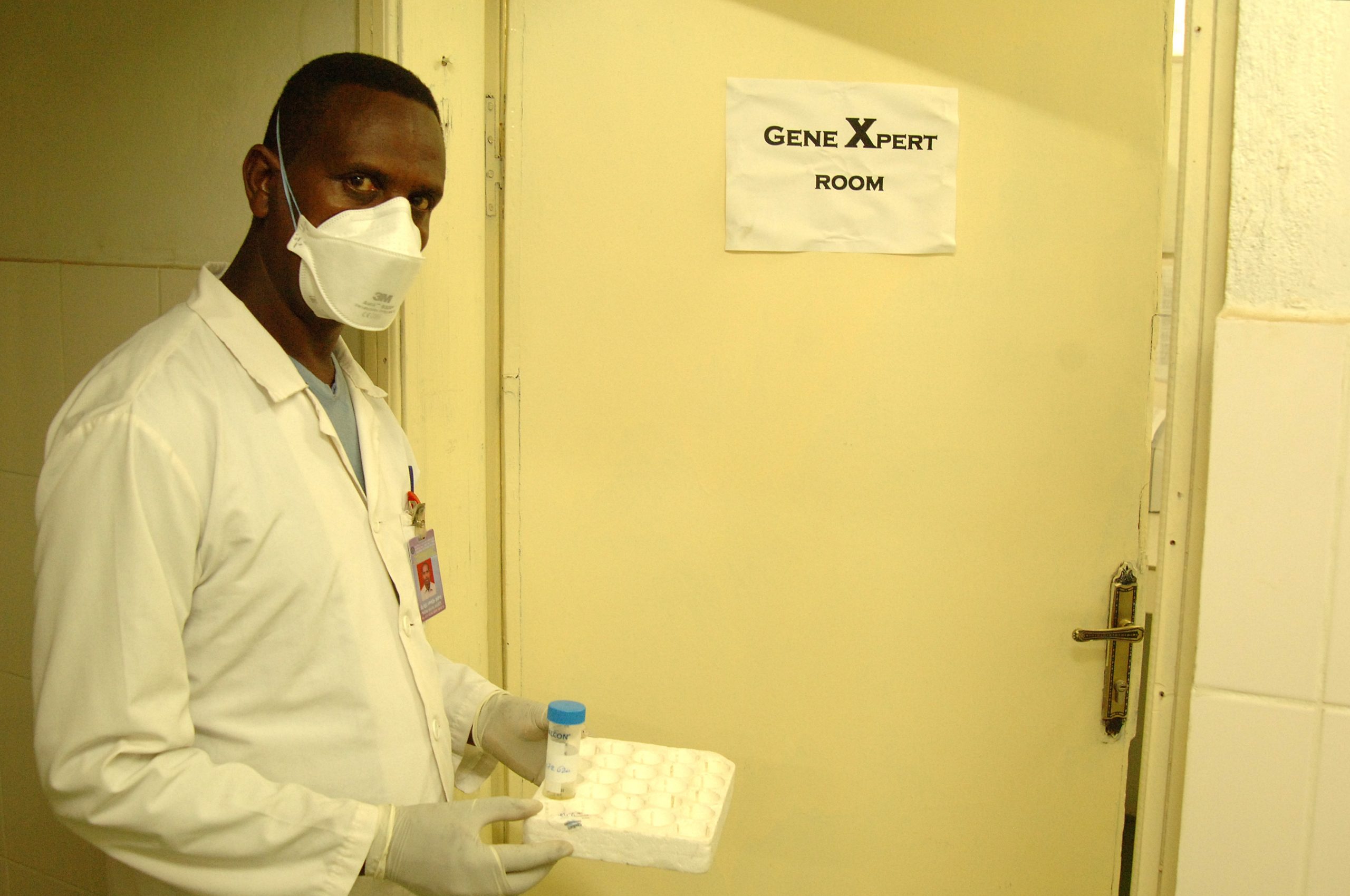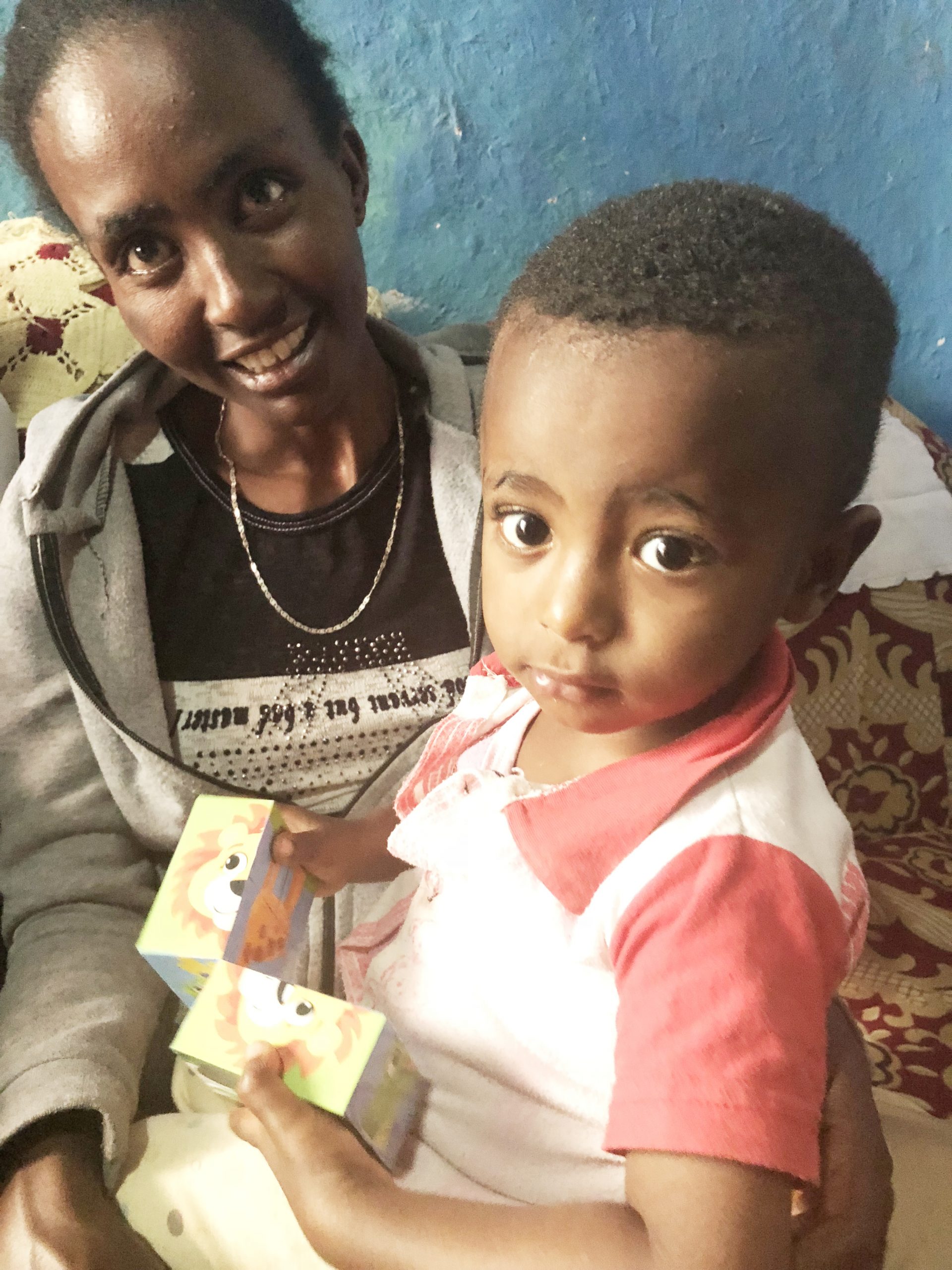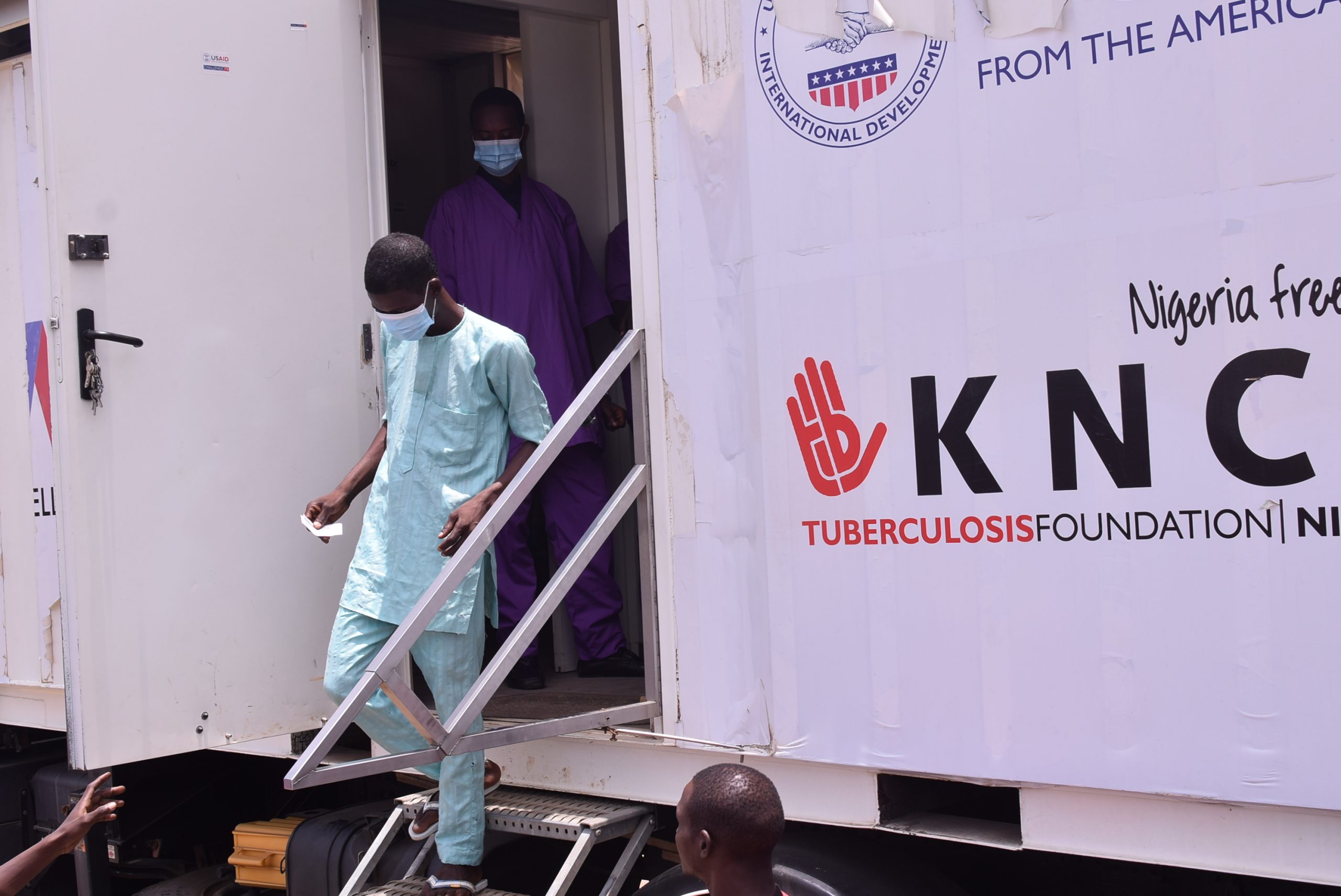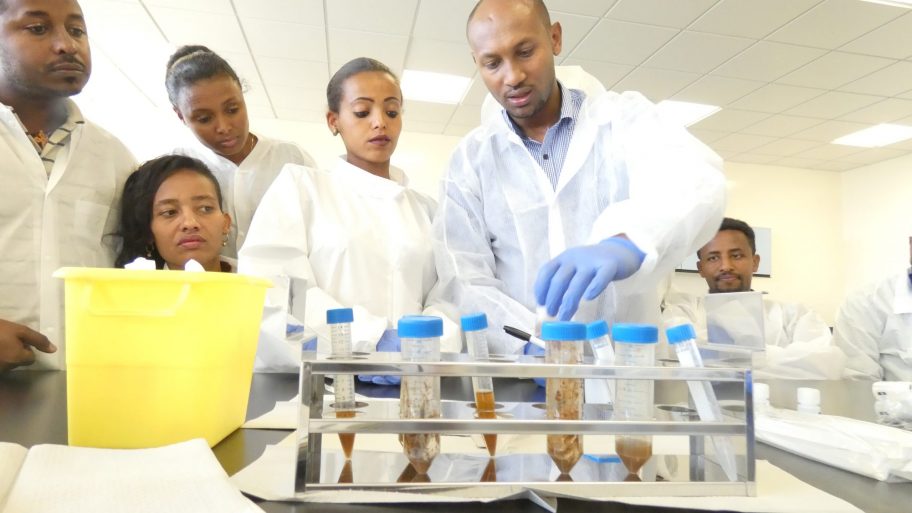Stopping the disease spreading further
To eventually end the suffering from tuberculosis (TB), all persons with active TB should be detected and treated appropriately, so they cannot spread the disease further. In addition, persons with latent TB, – persons infected with TB but who do not have symptoms -, also should be detected and treated, so that these persons do not develop TB in a later stage in their life and/or when their immune system is weak. Unfortunately, still 3 million patients per year remain undiagnosed and, therefore, do not receive treatment and continue to spread the disease. In order to improve this, KNCV assists in strengthening laboratory networks. Our multidisciplinary team of dedicated professionals is ready to provide assistance in various aspects of diagnostics and laboratory networks strengthening development.
GeneXpert platform: faster and more sensitive
 The GeneXpert platform offers the possibility to detect TB with a test that is faster and more sensitive than sputum smear microscopy, which was the most used test to diagnose (pulmonary) TB until half a decade ago. This so-called Xpert MTB/RIF test can detect TB within two hours and also whether the tuberculosis is susceptible or resistant to rifampicin, one of the most important drugs against tuberculosis. If drug resistance is detected, then the patient’s treatment can directly be adjusted for that. In addition to the “standard” Xpert test for detection of TB and rifampicin, we are now implementing another TB test on the Gene Xpert platform, the novel Xpert MTB/XDR test, which can quickly investigate whether a TB patient has extensively drug-resistant TB and needs specialized TB treatment. Xpert MTB/XDR test is aiming to provide complete diagnosis to the patient with rifampicin resistance within a few hours at the PHC level which was never possible before and KNCV is ready to assist in this decentralization. We have assessed the laboratory network in multiple countries for the optimal placement of the GeneXpert platforms and have helped with the implementation of these GeneXpert platforms.
The GeneXpert platform offers the possibility to detect TB with a test that is faster and more sensitive than sputum smear microscopy, which was the most used test to diagnose (pulmonary) TB until half a decade ago. This so-called Xpert MTB/RIF test can detect TB within two hours and also whether the tuberculosis is susceptible or resistant to rifampicin, one of the most important drugs against tuberculosis. If drug resistance is detected, then the patient’s treatment can directly be adjusted for that. In addition to the “standard” Xpert test for detection of TB and rifampicin, we are now implementing another TB test on the Gene Xpert platform, the novel Xpert MTB/XDR test, which can quickly investigate whether a TB patient has extensively drug-resistant TB and needs specialized TB treatment. Xpert MTB/XDR test is aiming to provide complete diagnosis to the patient with rifampicin resistance within a few hours at the PHC level which was never possible before and KNCV is ready to assist in this decentralization. We have assessed the laboratory network in multiple countries for the optimal placement of the GeneXpert platforms and have helped with the implementation of these GeneXpert platforms.
SOS stool processing method: non-invasive diagnostics of TB in children
 We test, pilot and implement innovative approaches for the diagnosis of TB. In 2018, at the UNION conference we announced the development of simplified one step (SOS) stool processing method for non-invasive diagnostics of TB in children. After two years we are leading multi-country studies on TB diagnostics in children and adults using stool as a specimen. Furthermore, we support countries in early implementation of the latest WHO recommendations for the use of stool as a sample for initial diagnosis of TB and detection of Rifampicin resistance in children and adults. We are involved in testing a very simple, one-step (SOS) stool processing method so that stool samples can be tested with the Xpert MTB/RIF test for the diagnosis of TB in persons who cannot easily produce sputum for testing, such as children and persons living with HIV. For persons living with HIV, we are currently investigating how a new urine-based test (FujiLAM) would best fit into an algorithm for the diagnosis of TB.
We test, pilot and implement innovative approaches for the diagnosis of TB. In 2018, at the UNION conference we announced the development of simplified one step (SOS) stool processing method for non-invasive diagnostics of TB in children. After two years we are leading multi-country studies on TB diagnostics in children and adults using stool as a specimen. Furthermore, we support countries in early implementation of the latest WHO recommendations for the use of stool as a sample for initial diagnosis of TB and detection of Rifampicin resistance in children and adults. We are involved in testing a very simple, one-step (SOS) stool processing method so that stool samples can be tested with the Xpert MTB/RIF test for the diagnosis of TB in persons who cannot easily produce sputum for testing, such as children and persons living with HIV. For persons living with HIV, we are currently investigating how a new urine-based test (FujiLAM) would best fit into an algorithm for the diagnosis of TB.
Computer-aided chest X-rays
Chest X-ray is an important screening tool that supports the diagnosis of TB, as most people with TB have abnormalities on their lungs due to the disease. However, the evaluation of chest X-rays may be difficult and subjective and artificial intelligence can contribute to more objective /sensitive readings of chest X-rays. Therefore, we have tested and introduced computer-aided chest X-ray reading in several countries.
COVID-19 testing in our mobile trucks
 We also have experience with the introduction of multi-disease testing platforms. Currently, we are using the COVID-19 test for the GeneXpert platform in our mobile trucks which go out into communities to screen for TB to differentiate TB from COVID-19. Integration of diagnostic services and use of multi-disease testing is important as it is more efficient and can save costs. Testing TB patients for HIV and vice versa is important, as these two diseases often occur simultaneously in patients. Cough and fever are two common symptoms of both TB and COVID-19, and a quick correct diagnosis is important because the two diseases should be treated very differently.
We also have experience with the introduction of multi-disease testing platforms. Currently, we are using the COVID-19 test for the GeneXpert platform in our mobile trucks which go out into communities to screen for TB to differentiate TB from COVID-19. Integration of diagnostic services and use of multi-disease testing is important as it is more efficient and can save costs. Testing TB patients for HIV and vice versa is important, as these two diseases often occur simultaneously in patients. Cough and fever are two common symptoms of both TB and COVID-19, and a quick correct diagnosis is important because the two diseases should be treated very differently.
Sample transport systems
We have helped developing and introducing sample transportation systems, in which samples are sent for diagnostic testing from the primary health clinics where the patients present, to the laboratory at the district level, and results of the diagnostic tests are sent back to the primary health facility. We are currently setting up such a system in remote areas in Ethiopia, where the system is supported by a mobile phone application in which sample transport from the health facility to the laboratory is followed, and testing results are reported.
Novel diagnostics methods such as next generation sequencing
Following the recent developments in diagnostic technologies, we are proactively looking into the expansion of the variety of novel diagnostics methods and approaches into routine diagnostics of TB and beyond. Our scope of interests include but is not limited to early implementation of next generation sequencing and targeted sequencing for the detection of drug resistance and AMR surveillance, the use of biomarkers assays in TB screening and treatment follow-up.

